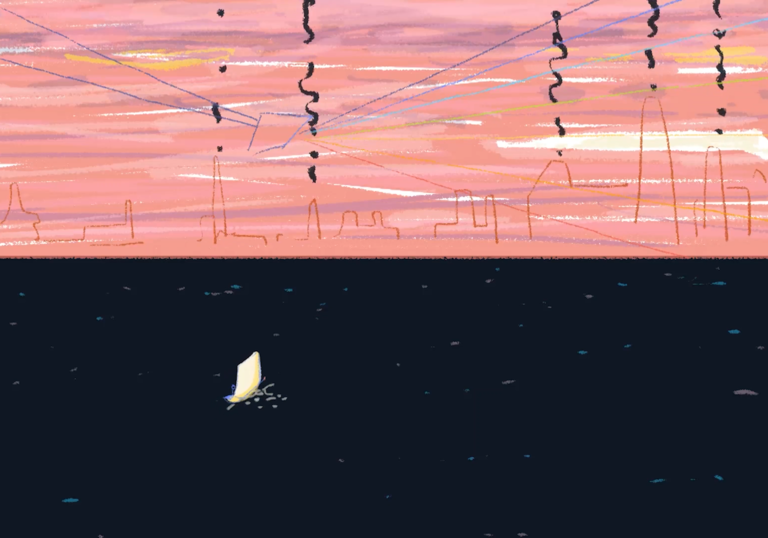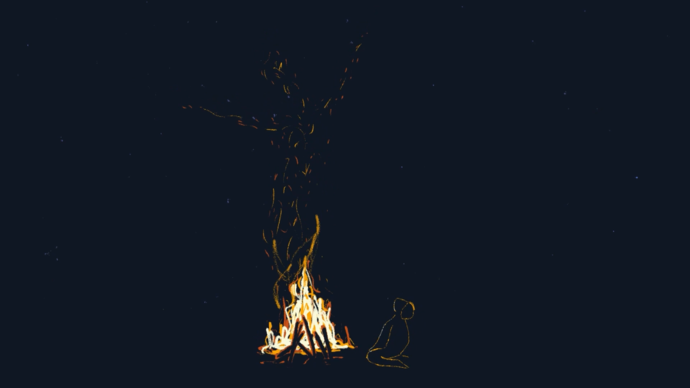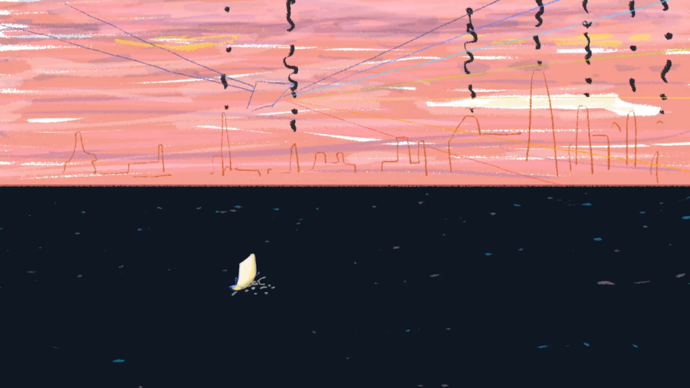Introducing the team
Director, Max Leighton is a climate change social scientist with a focus on narrative research. Patrick is an award-winning filmmaker and director who's worked with broadcasters, businesses and NGOs. Together, Max and Patrick co-founded In Our Nature, a sustainable not-for-profit production company. Gabriella Marsh is an award-winning animation director and lecturer. She creates her animations and illustrations for positive social aims and works with clients to disseminate research. Bhavnisha Parmar is a highly regarded voiceover artist, actor and adept storyteller. Henrik Meieorkord is an experimental musician who works for the Swedish radio station Sveriges and plays cello, double bass and viola.
Introducing the film, Green Feet on Concrete
"The root cause of the unfolding environmental catastrophe is our separation from nature. These films outline a spiritual rite of passage back into nature. Part one of three focuses on complexity and how the universe seems to grow life when complexity surpasses a certain threshold. Following an embryo to a child, we see the universe spawn life and humanity develops increasingly complex worldviews. Part two sees the child grow into a teenager, describing humanity's rise to material abundance, but profound dislocation from nature. Part three proposes our primary task is to realise we are still apples from the tree of life and embrace the ongoing third industrial revolution towards sustainability and compassion to the rest of life. The aim is to sketch out a deeper mythological purpose for our current moment of crisis."
How does your film respond to the ideas behind Our Time On Earth?
"Our time on Earth is being lived out by 7.9 billion of us. Yet, should ‘us’ include the birds, the bees and span past, present and future life? 300,000 years ago the Earth grew people like apples from the tree. Since the Enlightenment 300 years ago, we have come to see ourselves as distinct from nature. This has caused a profound crisis within us. In its most visible form, this crisis plays out in the unfolding environmental catastrophe we are facing today. Our films attempt to offer hope, perspective and empowerment against a chorus of apocalyptic narratives. We hope these films help fill a void of meaning in our current conversation about how we should relate to the rest of life."
Can you explain the process behind the making of your film?
"Max has been researching these topics for the last decade. At the heart of this story is interconnection. Befittingly, collaboration is at the heart of making these films. The themes are politicised meaning aesthetic and tone are critical. Gabriella gave the visual language to distil a breadth of ideas across billions of years into three minutes. Gabriella, Bhavnisha and Henrik spent hours on video calls understanding the ideas in the script. Bhavnisha's tone does not preach from authority but portrays a deep felt questioning curiosity. Henrik lets the listener find their own emotion in his music, which gives a pensive beauty and off kilter quality to the films. To conclude, when talented contributors collaborate the sum is always greater than the individuals."
What does the filmmaker of the future look like?
"So much of humanity now records footage. It's a potent force providing a motley of possibilities. This mixes a broader range of human experience which should drive diversity and creativity across the industry. For us, producing films with an international network of professionals is the key to achieving ambitious projects sustainably. Travel is a draw to the industry, but there is no reason why slower, sustainable trips can't become the norm. Finally, we see many more filmmakers who are particularly conscientious with who they work with. We strive to collaborate with like-minded contributors, but it is often challenging when digging into who funds what. We hope this trend continues."



